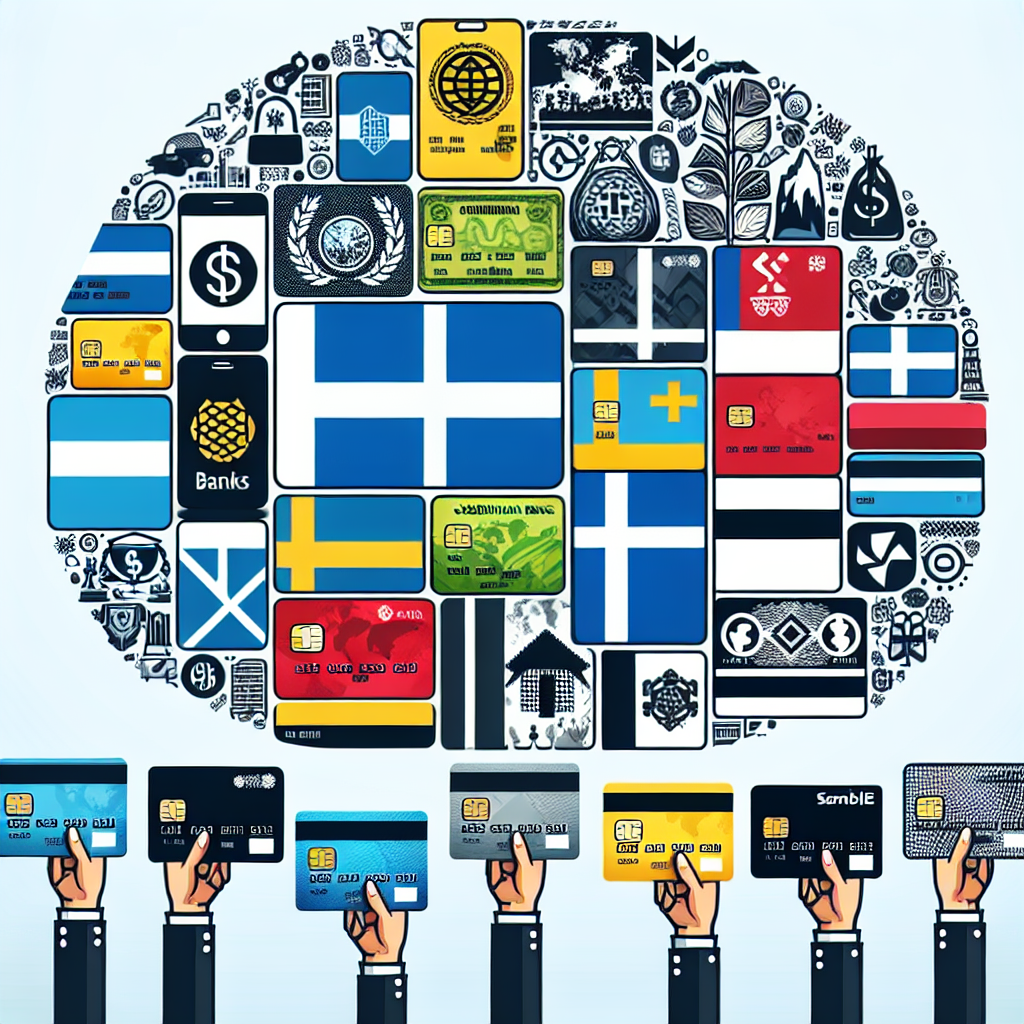The world of credit cards in France is undergoing a significant transformation, shaped by advancements in technology, changing consumer behaviors, and the evolving landscape of financial institutions. Among these key players, Société Générale stands out, playing a pivotal role in guiding these changes.
This article delves into the future of credit cards in France, examining trends from Société Générale while also considering other significant institutions such as BNP Paribas, Crédit Agricole, BPCE (Banque Populaire and Caisse d’Épargne), Crédit Mutuel, Hello bank!, and American Express France. Through this exploration, we aim to equip you with insights on how these developments affect consumers and the banking sector alike.
The Current Landscape of Credit Cards in France
Credit cards have become a fundamental part of everyday transactions in France, with over 60% of adults owning at least one credit card. The competition among banks is fierce, with institutions like BNP Paribas, Crédit Agricole, and Société Générale vying for market share. Each bank offers various types of credit cards catering to different needs, from rewards and cashback to travel benefits and low-interest options.
For example, Société Générale’s credit card offerings are designed to provide flexibility and convenience, allowing customers to manage their finances effectively. They have launched innovative products like the “Société Générale Visa Premier” that offers premium benefits, while brands such as Hello bank! focus on a digital-first approach that appeals to younger consumers.
The current credit card market landscape is further bolstered by mobile payment technologies and digital wallets, reshaping how consumers interact with their finances. Moreover, as consumers increasingly value digital solutions, banks are compelled to enhance their service offerings.
Technological Innovations Driving Change
Technology is at the forefront of revolutionizing credit card usage in France. With the rise of contactless payments, customers can now complete transactions more securely and conveniently. According to a recent study by the Banque de France, contactless transactions accounted for nearly 40% of all card transactions in 2022. This shift reflects consumer preferences for speed and safety in their financial dealings.
Moreover, Société Générale has been investing in cybersecurity measures to build trust among its customers. By implementing advanced fraud detection systems and biometric authentication methods, they aim to provide a secure environment for credit card transactions. This commitment to security is essential in attracting and retaining customers, particularly in a landscape where data breaches are a growing concern.
Emerging Trends in Credit Card Offerings
One of the most significant trends in credit cards is the move towards personalized products. Financial institutions are leveraging data analytics to understand consumer behavior better, enabling them to tailor offerings to individual preferences. Banks like BNP Paribas and Crédit Agricole are at the forefront of this trend, creating personalized credit card options that resonate with specific consumer segments.
For instance, BNP Paribas recently introduced a line of credit cards with customizable rewards programs, allowing customers to select benefits that align with their interests, whether travel, dining, or shopping. Such initiatives reflect a broader trend of personalization in the banking sector, aiming to foster deeper relationships with customers.
Eco-Conscious Credit Cards
As sustainability becomes a priority for consumers, the banking sector is responding with eco-conscious credit card options. Institutions like Crédit Mutuel and BPCE are launching green credit cards that promise to donate a percentage of purchases to environmental causes or offer rewards for eco-friendly purchases. This trend not only caters to environmentally aware consumers but also positions banks as responsible corporate citizens.
In addition, Société Générale is exploring eco-friendly card materials to reduce plastic waste. This shift aligns with a growing consumer expectation for companies to take responsibility for their environmental impact. As sustainability becomes an integral part of the credit card conversation, these institutions stand to strengthen their brand loyalty.
Understanding Financial Literacy in Credit Card Use
Financial literacy plays a crucial role in how consumers interact with credit cards. Studies show that a significant number of French consumers lack understanding of crucial credit card terms, leading to poor financial decisions. This gap presents an opportunity for banks to step in and educate their customers.
Institutions like Hello bank! are leading educational initiatives aimed at increasing financial literacy. Through informational workshops and digital content, they empower consumers to make informed decisions regarding credit card usage, such as understanding interest rates, fees, and the impact of credit scores. By prioritizing financial education, banks can help reduce the risks associated with credit card debt and improve consumer confidence.
Checklist for Choosing the Right Credit Card
- Evaluate your spending habits and determine if a rewards program aligns with your lifestyle.
- Check the interest rates and any annual fees associated with the card.
- Consider additional benefits, such as travel insurance or purchase protection.
- Read customer reviews to gauge satisfaction and reliability.
- Assess the security features provided to protect against fraud.
Impact of Regulatory Changes
The regulatory landscape in France also influences the future of credit cards. The European Union has implemented various directives aimed at enhancing consumer protection and transparency in financial products, including credit cards. For instance, the Consumer Credit Directive mandates clearer disclosures regarding credit terms and fees, ensuring that consumers are more informed about their borrowing.
Société Générale, along with other banks like American Express France, is adapting to these regulations by revising their marketing materials and product offerings to maintain compliance and foster trust among customers. The focus on transparency not only benefits consumers but also enhances the reputation of credit card providers in the long run.
The Role of Fintech in the Credit Card Sector
Fintech companies are rapidly entering the credit card landscape, providing innovative solutions that challenge traditional banking models. They offer unique benefits, such as instant approvals, lower fees, and a focus on user experience. Companies like N26 and Revolut are gaining traction, particularly among younger consumers who value digital-first solutions.
To compete with these agile fintechs, traditional banks like Société Générale and BNP Paribas are investing in their digital infrastructures. By enhancing their online platforms and mobile applications, they aim to provide a seamless customer experience that rivals that of fintech competitors.
Future Predictions for Credit Cards in France
As we look ahead, the future of credit cards in France appears promising. With advancements in technology, banks are likely to further embrace digital payment solutions, incorporating innovations such as blockchain and artificial intelligence to enhance security and improve customer experiences.
Moreover, the continued emphasis on personalization and sustainability will shape product offerings, ensuring that credit cards meet the evolving needs of consumers. Financial institutions that prioritize customer education, security, and eco-friendliness will likely lead the market, as customer expectations continue to rise.
Frequently Asked Questions (FAQs)
1. What should I consider before choosing a credit card?
Evaluate factors such as rewards, interest rates, fees, and security features.
2. How can I improve my credit score?
Responsible card usage, timely payments, and keeping credit utilization low can improve your score.
3. Are there eco-friendly credit cards available in France?
Yes, many banks, including Crédit Mutuel and BPCE, are launching green credit cards that support sustainability efforts.
4. How can I protect myself against credit card fraud?
Always monitor your accounts, use secure websites for transactions, and take advantage of security features offered by your bank.
5. What are the benefits of a rewards credit card?
Rewards cards provide incentives for spending, allowing you to earn points or cashback for purchases.
6. Are digital-only banks reliable for credit cards?
Digital banks often provide competitive offerings and robust security features, but it’s essential to review their customer service and reputation.
7. How do I manage my credit card debt effectively?
Create a budget, prioritize payments, and consider consolidating your debt if necessary.
Moving Forward
As the credit card landscape in France continues to evolve, understanding the trends from Société Générale and other major players is crucial for consumers. By staying informed about these changes, you can make strategic decisions regarding your credit card usage and financial health.
The future of credit cards is bright, fueled by innovation, personalization, and a commitment to customer satisfaction. Whether it’s through advancements in technology, regulatory changes, or a focus on sustainability, the world of credit cards in France is poised for growth. Embrace these trends and empower your financial journey!


